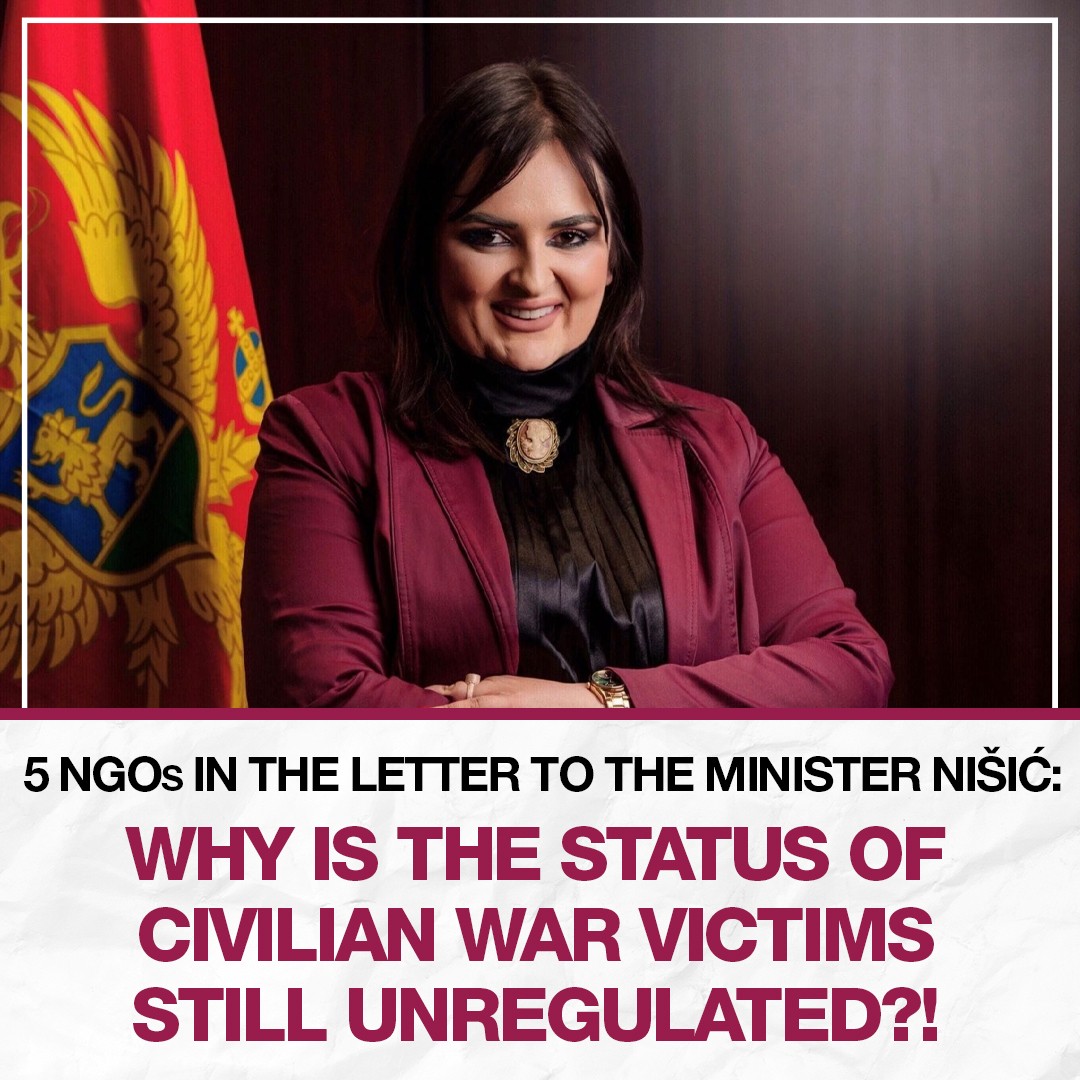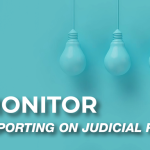
Why is the status of civilian war victims still unregulated?!
04/06/2024
SERIOUSLY CONSIDER THE REASONS FOR THE PRESIDENT OF MONTENEGRO RETURN OF LAWS
10/06/2024IMPROVE TEXTS OF LAWS ON JUDICIARY

Human Rights Action (HRA) considers that Montenegro deserved to receive the IBAR, because it made an effort to produce as many as 12 Bills of laws that were submitted to the Parliament.
However, HRA considers that final texts of those laws should include additional improvements.
HRA has been monitoring the implementation of the Law on the Judicial Council and Judges and the Law on the State Prosecutor’s Office for many years.
We believe the following legal solutions should be the same for judges and state prosecutors – and according to the proposed changes to the law, they are not:
1) The disciplinary prosecutor for judges, as well as for prosecutors, should have the right to independently initiate investigations to determine disciplinary responsibility and act proactively, if they receive information from anyone about the disciplinary responsibility of judges, not only from the president of the courts (see Article 50, The Proposed Law on Amendments to the Law on the State Prosecution Service);
2) Members of the Prosecutorial Council should have the right to initiate disciplinary proceedings as well as members of the Judicial Council (Article 110 of both Proposed Laws);
3) When evaluating judges, the decisions of the Constitutional Court and the European Court of Human Rights should be taken into account, as suggested for state prosecutors (see Art. 41, The Proposed Law on Amendments to the Law on the State Prosecution Service). This approach may only contribute to the authority and implementation of the decisions of the European Court of Human Rights in the practice of Montenegrin courts, which is an aim generally accepted;
4) Evaluate the state prosecutors from the Supreme State Prosecutor’s Office, as well as judges of the Supreme Court (see Art. 74 of the Proposed Law on Amendments to the Law on Judicial Council and Judges);
5) Extend the statute of limitations for conducting disciplinary proceedings for judges and state prosecutors, as well as the terms after which the punishment is deleted from the record (now they are different);
6) Delete the extension of the mandate of distinguished lawyers’ members of the Judicial Council for two years if the deputies cannot agree on the election of new members – because this possibility is not provided for lawyers in the Prosecutorial Council and encourages political irresponsibility and political trading in public functions that should serve the public and not any political party;
7) Give state prosecutors the right to file an objection to the Prosecutor’s Council against transfers without their consent and provide criteria for making a decision on transfers – as recommended by the Venice Commission; provide the same objection to the judges;
8) Prescribe also for the members of the Judicial Council that their function ends if, during their term of office, they cease to fulfill the guarantees against political influence, as provided for the members of the Prosecutorial Council (see Article 16, Paragraph 1 of the Proposed Law on Amendments to the Law on the State Prosecution Service).
HRA also prepared the texts of the proposed amendments and delivered them this morning to all MPs and the Ministry of Justice. The English version of the proposed amendments is available here.






 English
English